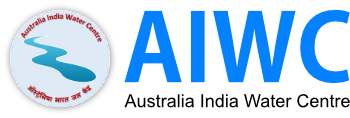The Sustainable Development Goal (SDG) 6 and agenda 2030 recognises the role of water in human development. The goal of SGD 6 is to “ensure availability and sustainable management of water and sanitation for all”. The covid 19 pandemic also emphasises the importance of sanitation, hygiene and adequate access to clean water for preventing and containing the virus. Water is essential not only to health, but also to poverty reduction, food security, peace and human rights, ecosystems and education. The multifaceted role of water in our life suggests a multidimensional approach to understand and appreciate the many ways people use, manage and care for water.
The Australia India Water Centre (AIWC) was launched on November 6, 2020 with the aim to enhance collaborations in ‘sustainable water futures’ between Australia and India. The first of its kind collaborative Centre, the AIWC is led by Western Sydney University in Australia and Indian Institute of Technology Guwahati in India with a total of 24 partners from the two countries.
The Centre is a network of water professionals from diverse fields with a commitment to carry out transdisciplinary research, education and capacity building in water. The larger goal of AIWC is to contribute towards achieving SDG 6 and interconnected goals by establishing a Australia India Water Academy. The AIWC partners have diverse interest and expertise such as engineering, ecology, social science, law and agriculture, thus making it a truly transdisciplinary group of water professionals to work for sustainable water futures.
The Centre is engaging with communities, governments and civil society organisations to address local, national and regional water issues. This is done through a series of activities such as training, capacity building, educational courses, webinars and workshops, to Australian and Indian participants, along with a number of outreach activities.
On the World Environment Day, 5th June 2021, the core members of AIWC decided to initiate a virtual water dialogue platform called “WaterWise”. This dialogue provides platform for outreach to a wide range water professionals for effective communication and networking among water professionals. This means the participants of this Dialogue are not passive receivers of knowledge but can also actively participate in the deliberations. Such water science communication is important for ‘Sustainable Water Futures’ of the two countries as it acknowledges different forms of knowledge, insights and experiences, provides equal status to everyone, and helps us to learn with and from each-other.
AIWC believes that WaterWise will go beyond transferring factual information, will create space to share and listen to knowledge and experiences that are too often absent in the discussion around water but are important to address the complex and critical water concerns. We strongly feel that such an initiative will help us achieving the water-related goals of the 2030 Agenda.
We look forward to your support and contributions in making the ‘WaterWise’ initiative a success.
Thank you!
1 Professor Anamika Barua, Department of Humanities and Social Sciences, IIT Guwahati, India, Email: abarua@iitg.ac.in
2 Professor Basant Maheshwari, Western Sydney University, Australia, Email: b.maheshwari@westernsydney.edu.au
